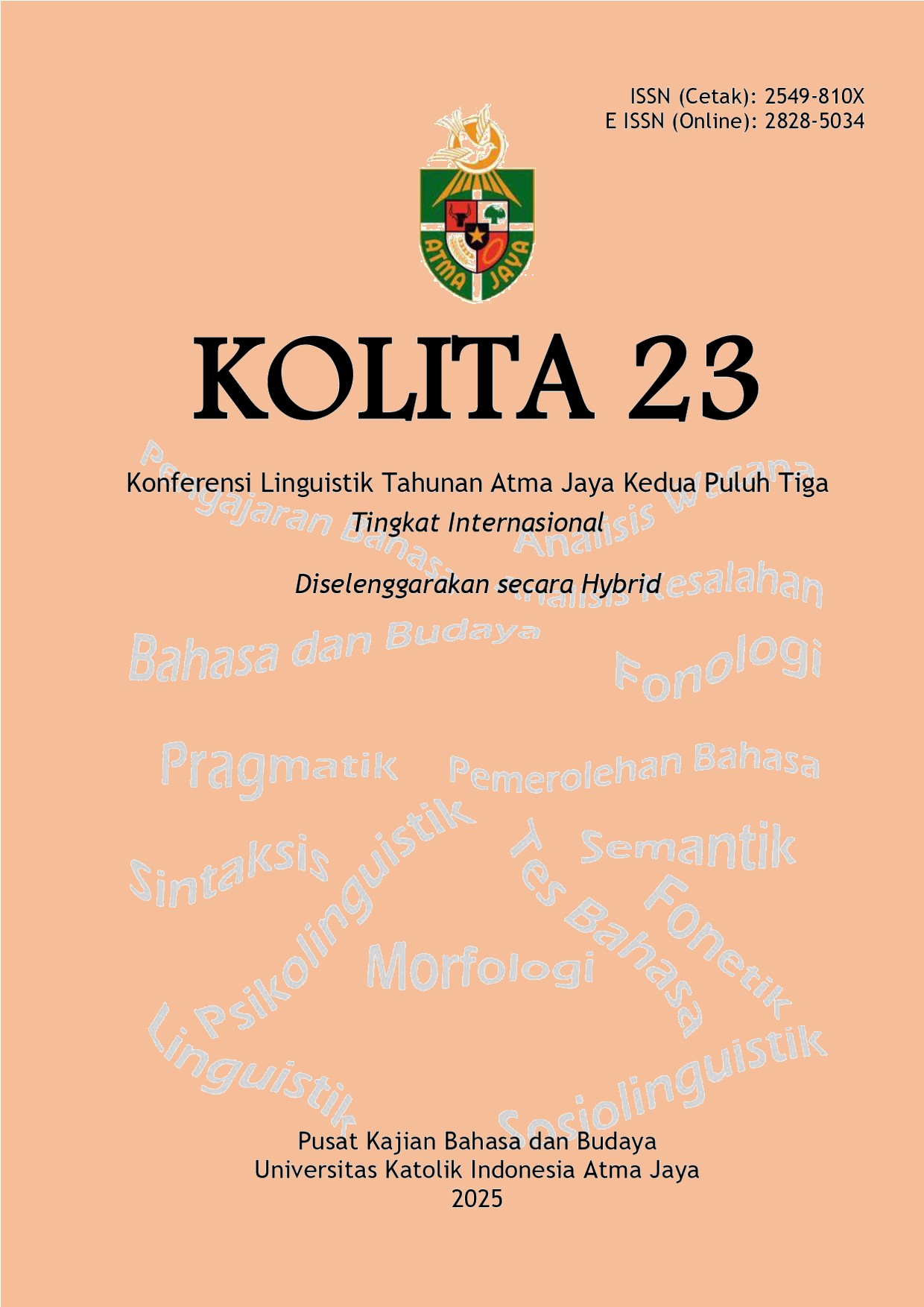ANALYSIS OF VERBAL ATTACKS BETWEEN WIBU AND KPOPERS COMMUNITY ON TIKTOK: CASE STUDY OF THE @pacstudio ACCOUNT
DOI:
https://doi.org/10.25170/kolita.v23i23.7145Abstract
Social interactions in digital media frequently give rise to various forms of conflict, one of which is verbal aggression, particularly among fan communities of popular culture. These interactions are often emotionally charged and serve as a battleground for expressing group identity, superiority, and rivalry. This study investigates the phenomenon of verbal attacks in online interactions between Wibu and Kpopers on the TikTok platform, with a specific focus on comments found on videos posted by the @pacstudio account. The purpose of this research is to analyse how online fan cultures engage in aggressive discourse, what types of aggression are commonly used, what social motives underlie such behaviour, and how the targeted group responds to these attacks. The study employs a qualitative descriptive method combined with content analysis, as outlined by Creswell (2004), to systematically examine the nature of the verbal aggression. It focuses on identifying key linguistic forms such as sarcasm, ridicule, and defamation, which are frequently used to demean, insult, or provoke the opposing community. The theoretical framework integrates Social Identity Theory (Tajfel & Turner, 1979), which explains how individuals form group-based identities that influence intergroup dynamics, and Verbal Aggressiveness Theory by Infante and Wigley (1986), which conceptualizes verbal attacks as behaviour intended to damage another’s self-concept while reinforcing the attacker’s group position. Data were collected from purposively selected comment sections of TikTok videos that generated high levels of engagement and intergroup tension. The findings reveal that Wibu fans often use verbal aggression to assert superiority, defend their group’s legitimacy, and perpetuate negative stereotypes about Kpopers. These patterns are amplified by the influence of social validation, where support from like-minded users encourages further antagonism. Such behaviours manifest in mocking comments, unfounded accusations, and sarcasm aimed at belittling others. The responses from Kpopers vary, including self-defence, counterattacks, and reaffirmation of identity through cultural and personal achievements. Some even mirror the initial aggression, indicating a cycle of hostility. These verbal confrontations reflect deeper issues of digital tribalism and identity polarization, where fan culture becomes a site of division rather than shared enthusiasm. Ultimately, this study provides insights into the mechanics of online verbal aggression and emphasizes the importance of developing strategies to promote more respectful and constructive communication across digital communities.






